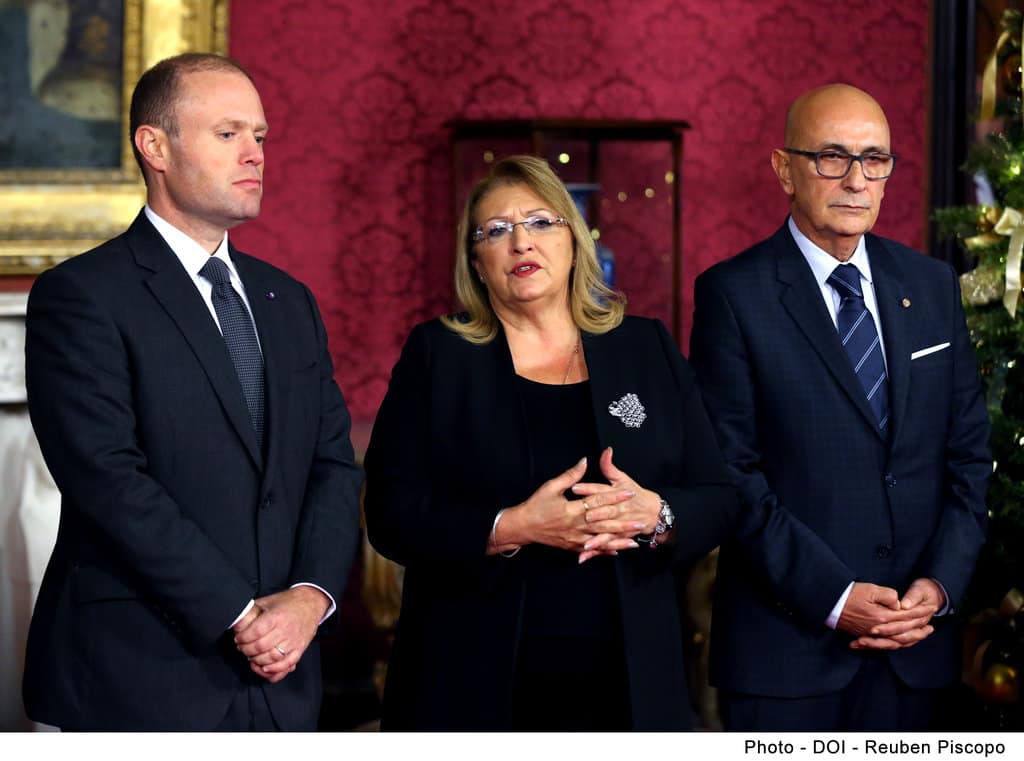
Bismarck said there are two things the public should never be allowed to see being made: sausages and laws. He served as a chancellor where the head of state was chosen by inheritance, a fact that would cost him his job. But if he saw the way heads of state were made in Malta, he’d add that to the list of queasy fabrications that should rightly cause the sturdiest stomachs to heave.
Now, don’t get me wrong. The presidency of Malta is not a job people fight for, unless they are Franco Debono in which case, they will throw around hints as subtle as Richard of Gloucester in prayer and penitence displaying mock reluctance. The reluctance of most appointees to the post, however, is not faked.
Joseph Muscat was by no means the first prime minister to force one of his older ministers into retirement from the administration by hauling them to the palace.
But it’s one thing to drag Ugo Mifsud Bonnici to the palace kicking and screaming when they thought they still had things to do in their department, and altogether a new level of Henrician tyranny when Marie Louise Coleiro Preca finds herself publicly crowned while at home ironing the laundry.
What is stunning about what the former president admitted was that her appointment was announced when she had not yet accepted the position. Worse, the last thing she had told the prime minister was that she was refusing the position. She was, she says, hired against her will.
If you do that to a housekeeper, they’d rightly call it slavery.
The fact of the matter is Joseph Muscat’s tyranny was accepted. Marie Louise Coleiro Preca worked out that she had no real option to deny that she was going to be the President. All Joseph Muscat needed to do was to publicly will her election and she’d submit. She submitted.
I usually complain at how the behind-the-scenes workings of power in this country are short of basic democracy. In this case the behind-the-scenes workings of power fell short of basic decency.
This was 2014. Muscat had only been in office for a year. He could do this because he could do anything. He would, just two years later, hold on to Keith Schembri and Konrad Mizzi after the Panama scandal broke. Because no one would stop him. Whatever their misgivings his cabinet colleagues would not say no to him.
This is not ancient history. It isn’t even recent history. It’s current affairs. Senior Labour ministers that remained silent when Robert Abela withdrew a Parliamentary bill dealing with unexplained wealth, when it emerged that Robert Abela hired his property to Russians lying to the Maltese government about living here, when it emerged he had been in business with someone who solved their business problems by resorting to unlawful arrest and kidnap, when he publicly mocked the notion of having an anti-mafia law, when he proposed legislation permitting abortion swearing that he wasn’t, and most recently when he presented a bill abolishing the legislature’s power to choose a commissioner to oversee ethical conduct in public life, will in 10 years’ time be giving interviews about how they shut up in spite of their deepest misgivings.
The fact of the matter is Marie Louise Coleiro Preca could have and should have said no. But party loyalty prevailed and like all those Evarist Bartolos and George Vellas and the authors of the yet to be written memoirs, like a lamb to the slaughter she hobbled up the steps of San Anton: a Bismarckian lamb sausage.